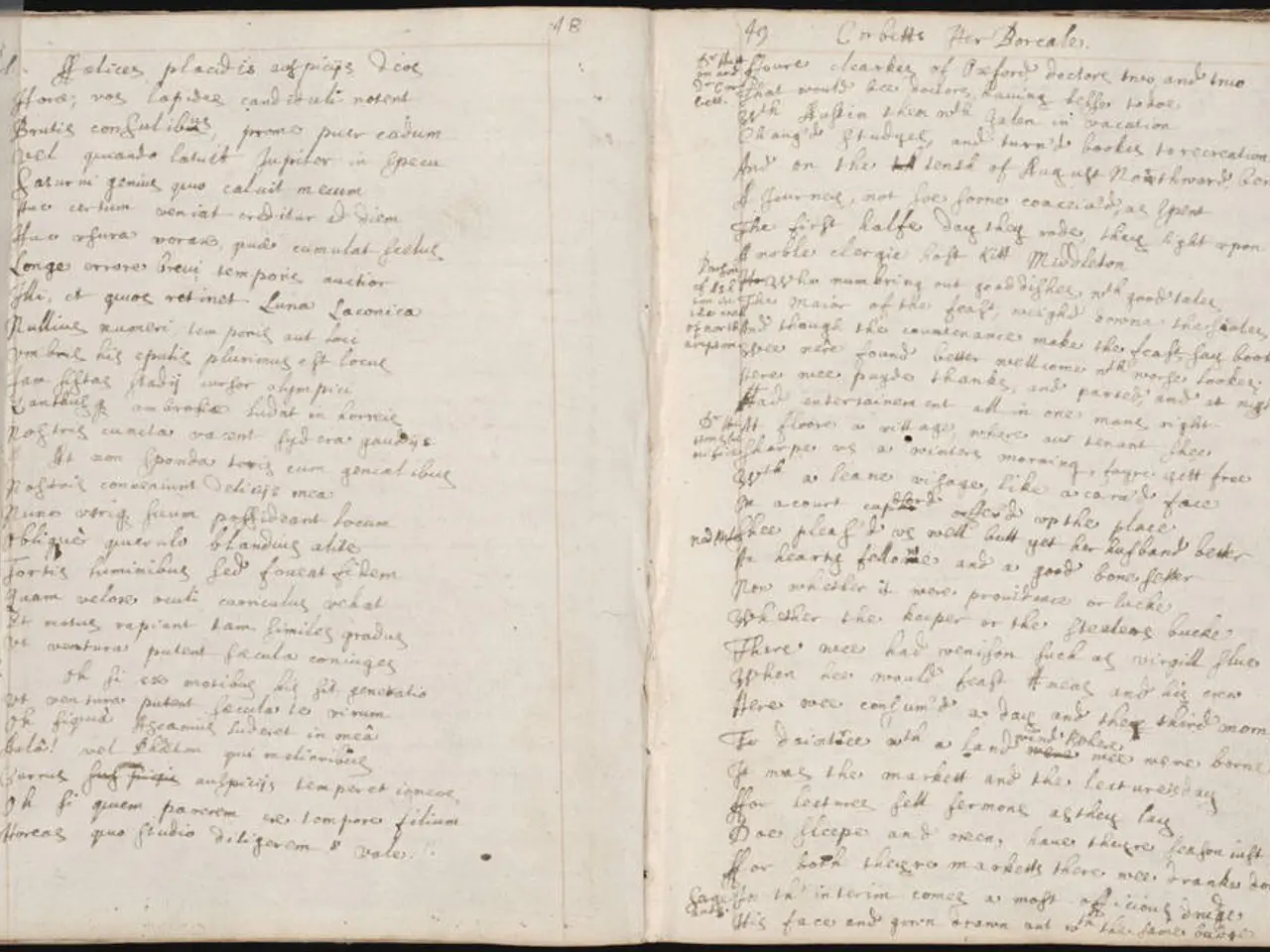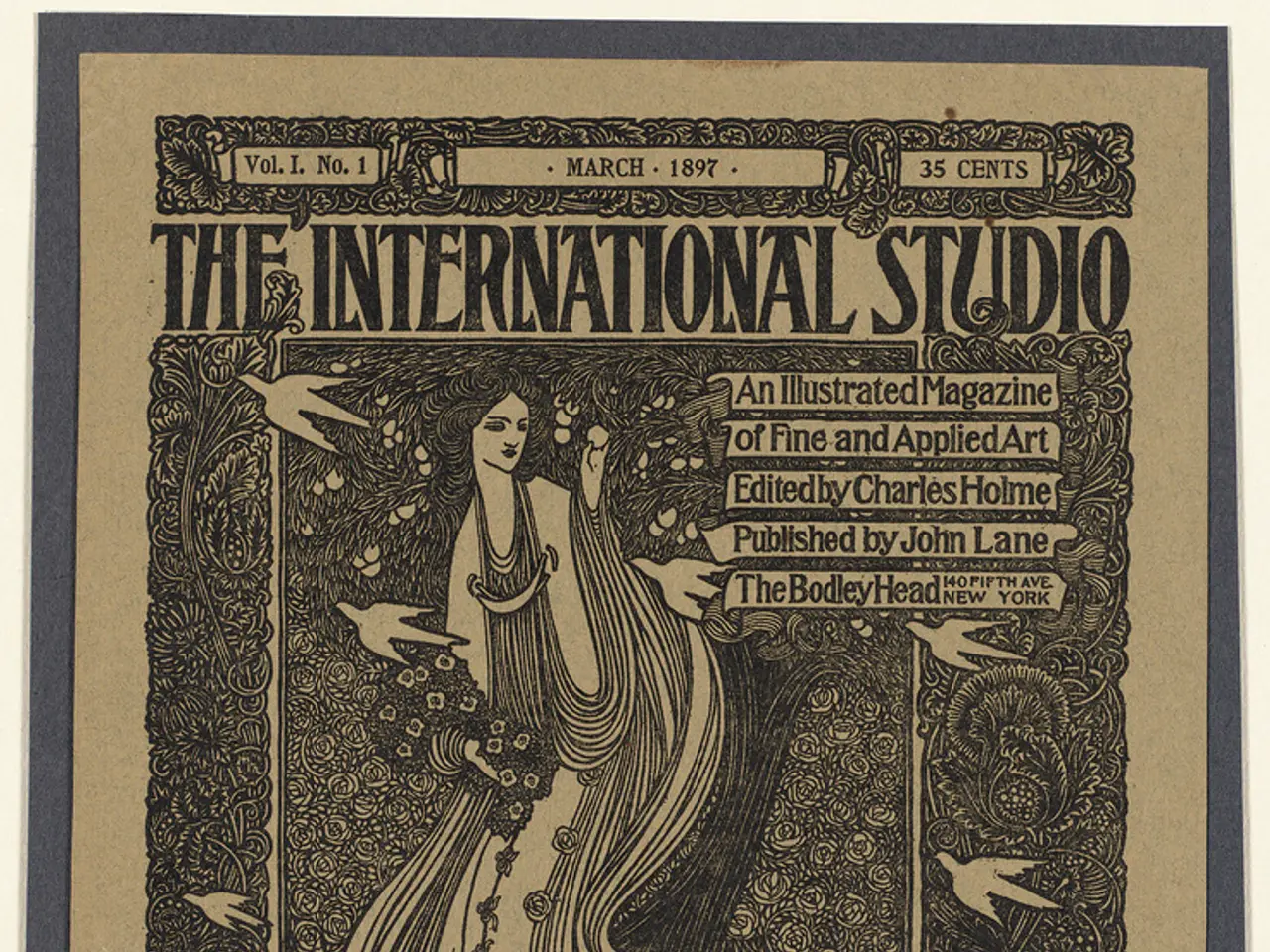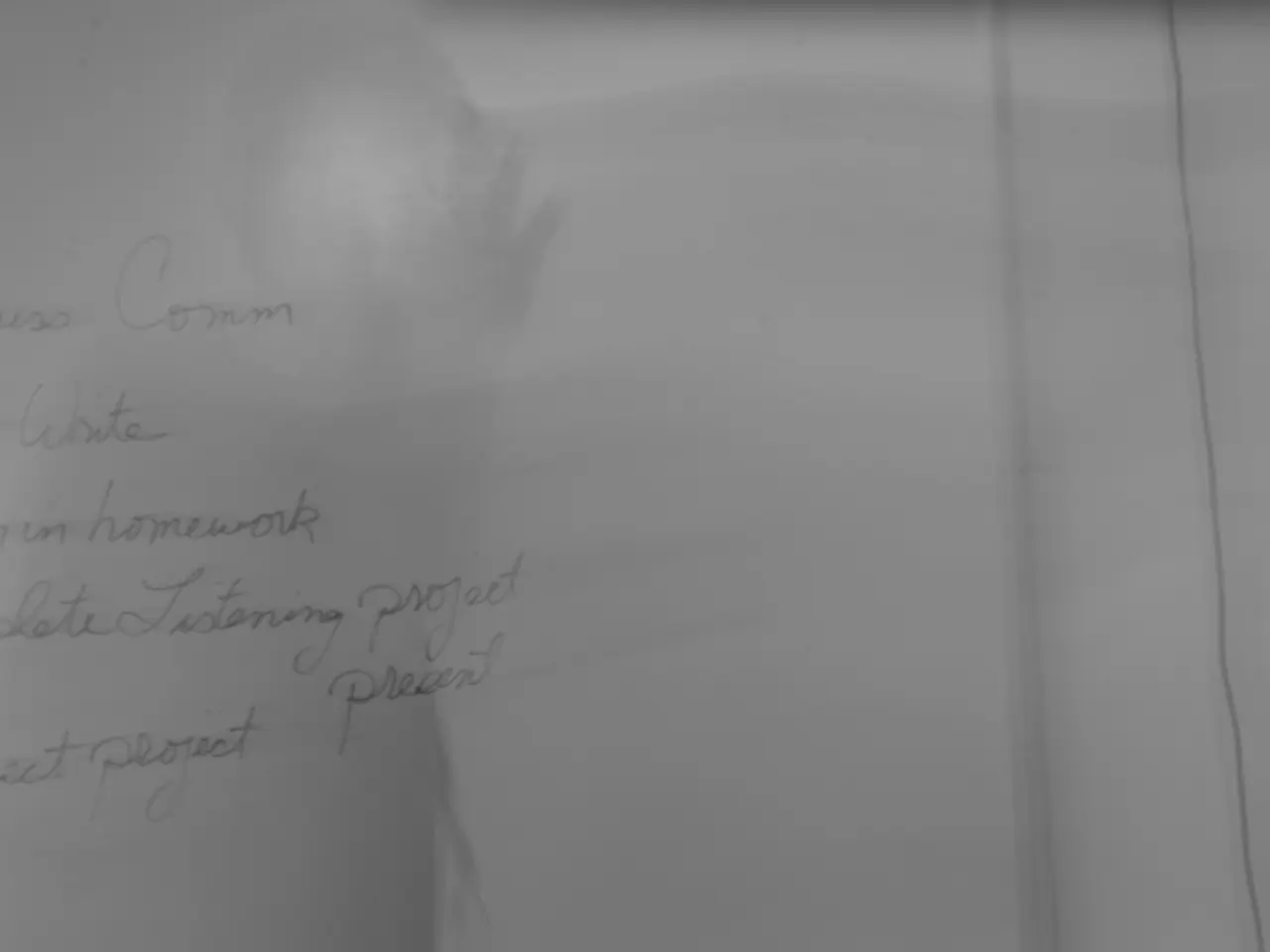Lone Island Remains Unclaimed
In the captivating world of literature, Gabrielle Alioth's novel "The Last Island" stands as a thought-provoking read that invites introspection and rereading. Published by Lenos Verlag, this linguistically beautiful work spans 229 pages and retails for 26 euros, carrying an ISBN-10 of 3039250450.
The novel does not preach but uses myths like Kalypso, Lilith, Augustine, and Jonas to illuminate modernity. It centers on themes of identity, exile, and the search for belonging, often exploring complex human emotions through its narrative.
The first-person narrator's life revolves around her lover Daniel, her husband Alexander, and a garden. Holm, the character portrayed as a symbol of Western scientific spirit, is an introverted scientist who maps sinking islands. Holm's relationships, much like his work, are incomplete and isolated, a mirror of his character.
Holm encounters Nessa, a mysterious, assertive, and freedom-loving character on Red Island. Ronan, an old man, serves as Holm's mystical companion on the Monk's Island. The novel's structure alternates between the perspectives of Holm and the first-person narrator.
One significant sentence in the novel is, "Perhaps life is just a sequence of stories we tell ourselves." This could be the secret motto of the novel. Holm experiences a fever dream between jellyfish and fossils before disappearing in a mist and memory.
The narrator wanders with her dog Kalypso along the shore, deletes data, and preserves a seashell. Plants, animals, and stones in the novel are not just a backdrop but are equal narrative instances, carrying unspoken memories.
Daniel, the narrator's intellectual equal, is deeply affected by the loss of their child. After his death, Daniel appears to the narrator in dreams. The novel presents ethical dilemmas such as clones of deceased children, ecological catastrophes, and the military disposal of islands.
The central themes of "The Last Island" include memory, reproduction, transience, and the question of what is real or original. The novel ends quietly, fragmentarily, and open-endedly, leaving the future fragile, clonable, narratable, but never controllable.
In essence, "The Last Island" is a novel that invites readers to embark on a journey of introspection, challenging them to question their own narratives and the nature of reality. It is a work that resonates with the beauty and complexity of life, much like the works of Olga Tokarczuk, Judith Schalansky, and Jenny Erpenbeck. For a more detailed understanding of the plot and themes, consulting an official summary, literary reviews, or the novel itself would be recommended.
This novel, "The Last Island," offers a unique exploration of themes such as lifestyle, identity, and the search for belonging, intertwined with elements from books like mythology. The narrative's structure, which alternates between the perspectives of two main characters, mirrors the complexities of entertainment, engaging readers with intricate human emotions and thought-provoking narratives.






